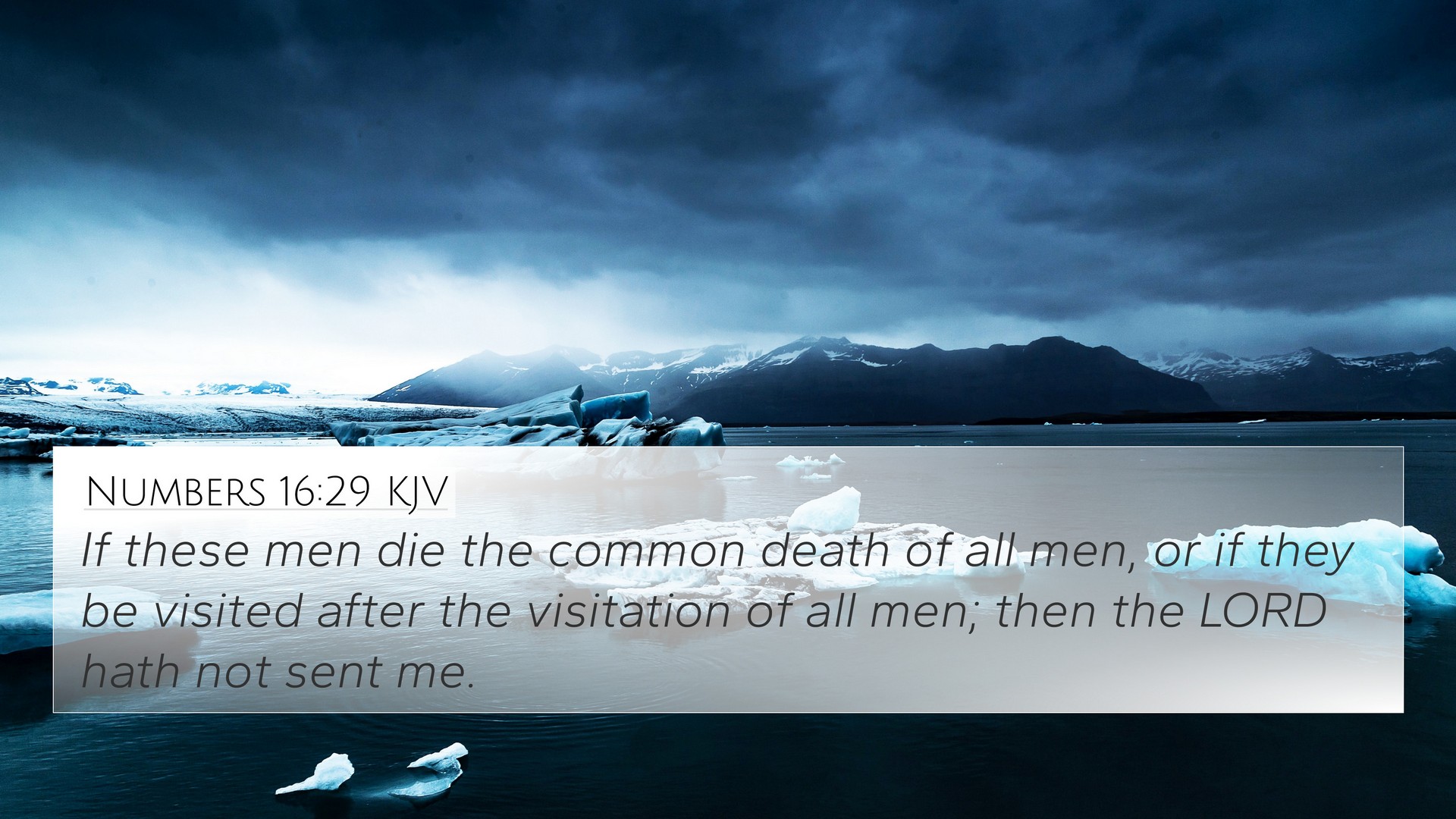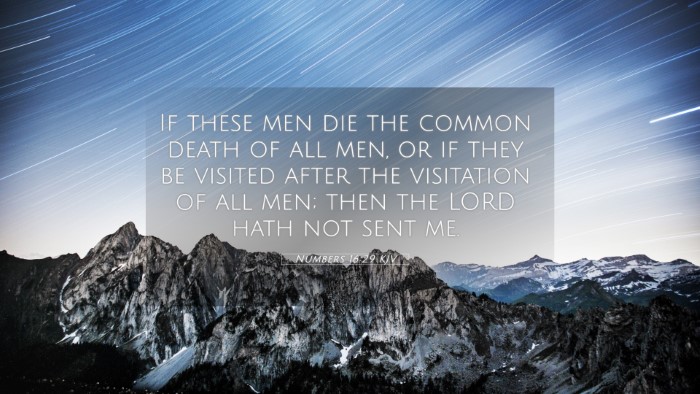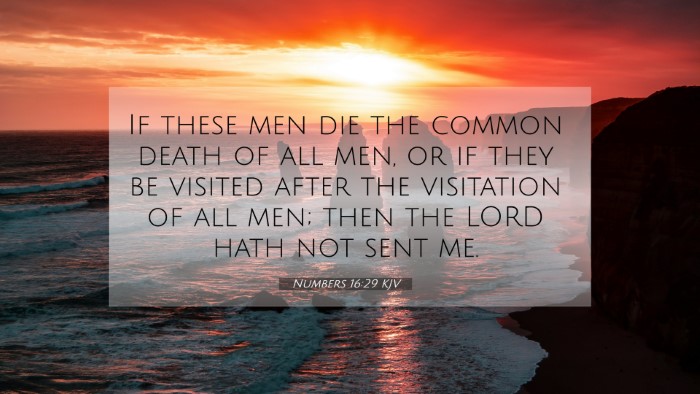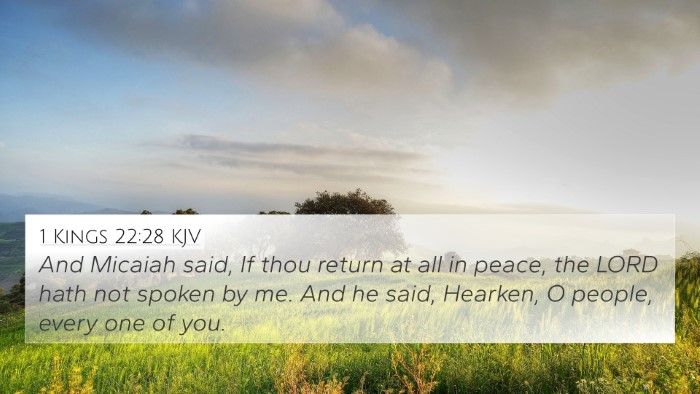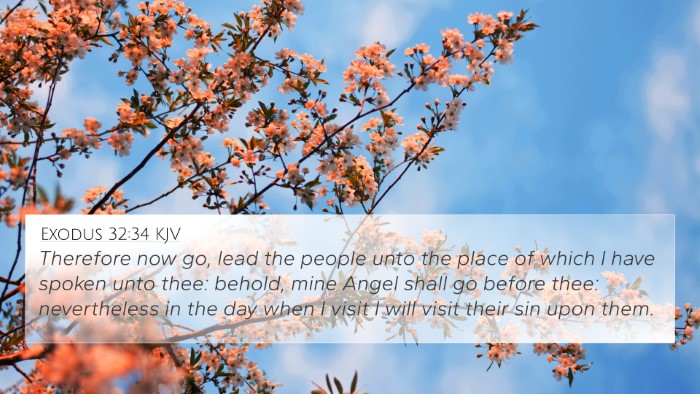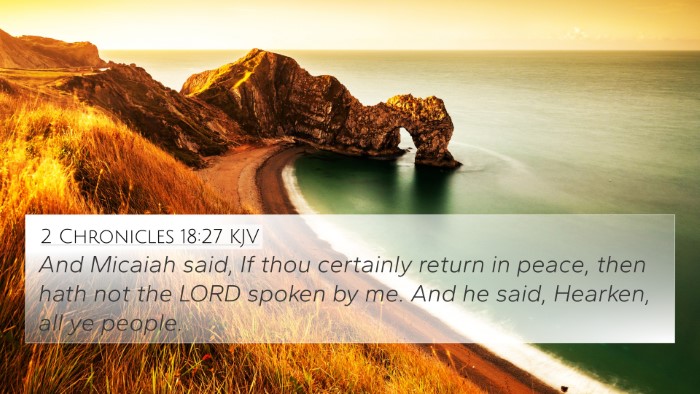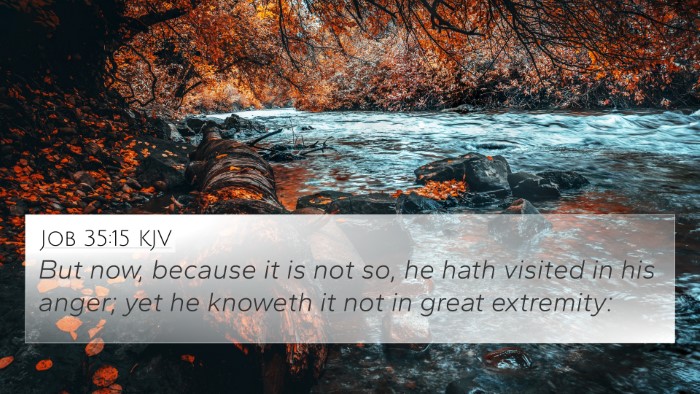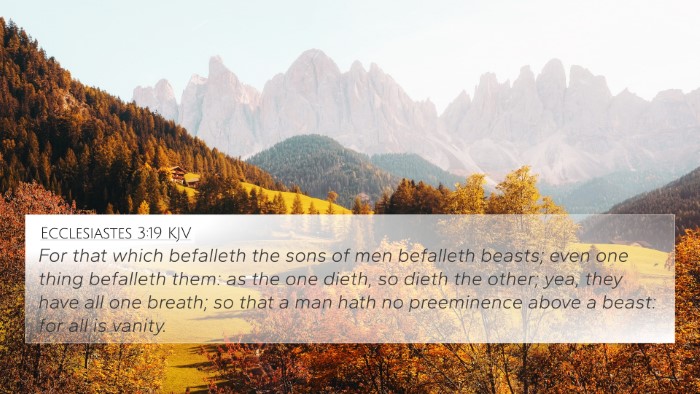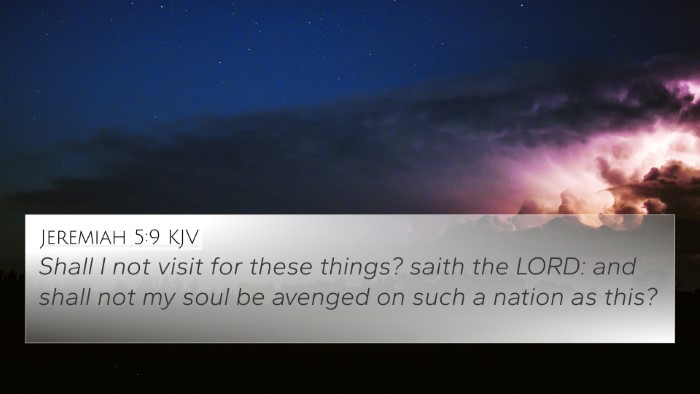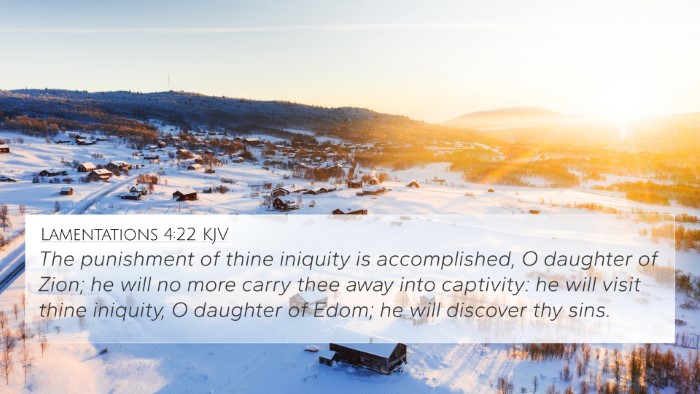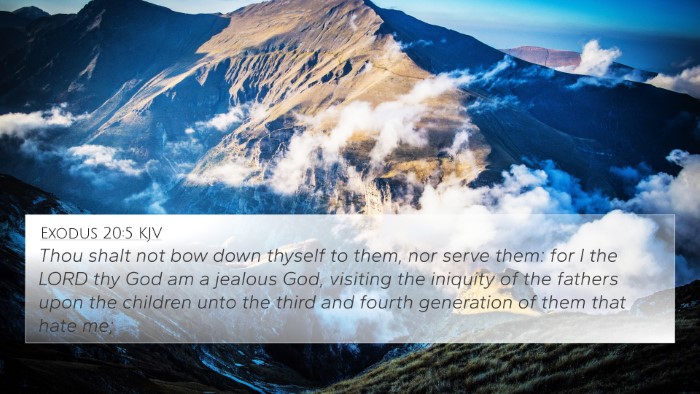Understanding Numbers 16:29: A Summary of Insights
Bible Verse: Numbers 16:29
Verse Text: "If these men die the common death of all men, then the Lord hath not sent me."
This verse occurs during a significant moment in the narrative of the Israelite journey, where Moses distinguishes between the divine authority he represents and the rebellious actions of Korah and his followers. This commentary will delve into the meanings and connections of this verse as interpreted by several public domain sources.
Verse Context and Overview
In Numbers 16, we find the rebellion of Korah against the leadership of Moses and Aaron. Moses boldly confronts the threats posed by these leaders and presents a divine test to establish who God has chosen. Numbers 16:29 serves as Moses' declaration of faith in God's authority:
- Moses emphasizes that if the common death of all rebels occurs, it will signify that God did not send him.
- This statement highlights Moses’ role as a prophet and leader, affirming his divinely appointed authority.
Insights from Commentaries
Matthew Henry: Henry notes that Moses speaks here to assert that a divine distinction is crucial: true prophets—and in this case, he himself—should be recognized by their divine backing. Henry emphasizes the gravity of approaching God with false intentions and the seriousness of divine judgment.
Albert Barnes: Barnes points out that Moses presents a specific judgment test. He implies that true divine endorsement will yield miraculous confirmations, where, should these men die naturally, it would absolve God’s involvement in his leadership. Barnes highlights God's sovereignty in appointing leaders.
Adam Clarke: Clarke interprets this verse in the light of God's miraculous workings. He discusses the implications of distinguishing a true prophet from a false one by the outcomes of their lives. Clarke interprets Moses' request as an appeal for divine confirmation of his authority through unusual events rather than ordinary human experience.
Thematic Connections and Cross-References
This verse can be linked to several other biblical references that emphasize divine authority, judgment, and leadership:
- Deuteronomy 18:22: This verse discusses how to recognize true prophets through the fulfillment of their prophecies.
- 1 Samuel 2:25: This passage highlights the consequences of disregarding God's authority and call.
- Jeremiah 28:9: Expounds the idea of recognizing God's true prophets based on their message and its outcomes.
- Matthew 7:20: Jesus speaks about recognizing false prophets by their fruits, similar to Moses' call for a sign from God.
- Hebrews 10:31: Emphasizes the fearfulness associated with falling into the hands of the living God, paralleling the serious consequences outlined in Numbers 16.
- James 3:1: Discusses the greater judgment that comes upon those who teach, reflecting the weight of Moses’ leadership choices.
- 1 Corinthians 14:32: Discusses the nature of prophesy and how prophets are subject to scrutiny, linking back to Moses’ statement for verification of his leadership.
Conclusion: The Legacy of Numbers 16:29
Numbers 16:29 serves as a powerful declaration of faith in God’s sovereign choice of leadership among His people. This verse frames the conversation around authority and accountability within spiritual leadership. The combined insights from Henry, Barnes, and Clarke emphasize the solemnity of Moses’ claim and its implications for how we understand prophetic authority in both the Old and New Testaments.
For those studying this chapter in-depth, exploring the connections and cross-references can greatly enhance our understanding of scriptural themes related to leadership, divine authority, and accountability among God’s chosen representatives.
Tools for Further Study
To deepen your study on Numbers 16:29 and its connections, consider using:
- Bible Concordance: A tool that can help trace terms and themes across the scripture.
- Bible Cross-Reference Guide: A structured approach to finding related verses for comparative analysis.
- Cross-Referencing Bible Study Methods: Techniques that enhance your understanding of biblical context and relationships.
Final Note: Embrace the journey of exploring the Bible's deeper meanings and the interconnections that exist among various scriptures, which serve to illuminate our understanding of God’s word.
